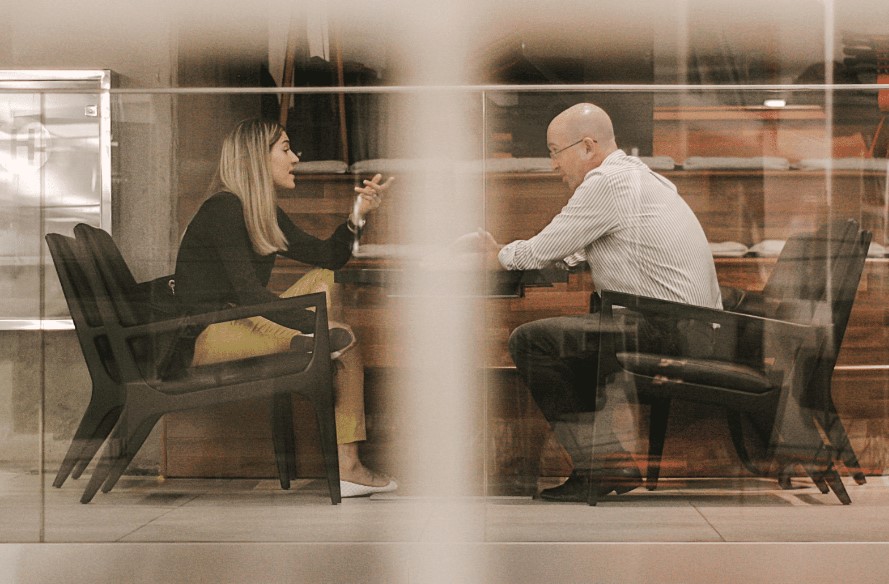Often, people don’t feel that they are important enough to accept responsibility for their actions. They believe that they don’t deserve love and therefore, don’t take responsibility for their actions. They might not realize that taking responsibility for your actions will make a difference in your relationship. They are also unkind to the people they are responsible for. When this happens, it can make your partner feel devalued and unworthy.
Over-responsibility
Over-responsibility in relationships can be exhausting, but it is essential to understand that it is not a sign of weakness, or weakness in the relationship. Having too many responsibilities can make you feel unqualified and incompetent, while being more likely to burn yourself out. Over-responsibility can be avoided by practicing self-care and learning to set and maintain better boundaries. Being too responsible will undermine your relationship and your personal growth, so it is important to recognize the signs and learn to set and adhere to boundaries.
When you’re over-responsible in relationships, you are taking on other people’s responsibilities and feelings without asking for their own. You take on other people’s responsibilities and feelings, and this can lead to a dangerous dynamic Relationships. Often, you’ll end up being responsible for everyone else’s feelings and behavior. As a result, you’ll end up taking on a lot of responsibilities and be the reason for your partner’s incompetence.

Codependent tendencies
If you are struggling to take responsibility for yourself and your partner’s actions, you may be suffering from codependent tendencies. This condition is the result of dysfunctional family dynamics. Codependent people seek out partners who need fixing and ignore their own needs. They may even give up their own hobbies or interests in order to devote more time to their partner. They may also ignore their own feelings or insights.
Developing codependent tendencies is often a learned behavior based on emotional and behavioral difficulties. It is common for people to develop codependent tendencies when they are raised by an alcoholic parent. Relationships While it may seem like an easy way to avoid responsibility in a relationship, codependent people often learned this behavior from their parents and had trouble separating themselves from their parents. In addition, codependent adults often had a difficult relationship with their parents as children and learned that their needs were more important than their partner’s.
Understanding codependent tendencies and why people do not accept their own responsibility in relationships is essential to ensuring a healthy future. It will also help you make decisions to leave the relationship if the relationship is too unhealthy. If you or your partner suffer from codependency, you can learn to deal with it and move on to healthier relationships. By doing so, you will be able to take responsibility and be more independent.
Blaming yourself for your partner’s mistakes
Often, blame arguments can spiral out of control, with no resolution in sight. Psychologists say that winning the battle is not the same as winning the war. In order to move forward in your relationship, it’s vital that you put aside past conflicts and disarm your protective shield. Here are some helpful tips to rekindle your relationship:
- Avoid the blame game. Rather than taking responsibility for your partner’s mistakes, find ways to work together and find solutions. When problems arise, a mature partner will openly discuss them, and will hold space for your partner’s unique point of view. In addition, blame games can also be a sign of deeper problems between partners. When you engage in blame games, you are sending a message that your partner needs to change.
- Stop making excuses. Avoid blame-shifting in your relationship. By doing so, you may widen the communication gap between you and your partner. Even small decisions might require you to consult your partner, which further decreases your self-confidence. You can avoid this behavior by working on your own self-esteem and becoming more accepting of your partner’s feelings. This way, you’ll be able to build your self-esteem and be more effective in your relationship.
- Instead of trying to prove yourself right, take responsibility for your own shortcomings. If you want your relationship to last, you should be open and honest. If you feel that your partner is not taking you seriously, don’t fight back. It’s better to apologize than blame your partner for mistakes made by your partner. As a result, you’ll be less likely to feel defensive. So, let go of any grudges or bitterness. You should also give your partner a chance to repair the problem.
- You can start to analyze the reasons why your relationship ended. In some cases, you might have acted inappropriately, resulting in a breakup. You might have misunderstood your partner’s actions, and you may have been unaware of it. This is not healthy. In addition, blaming yourself for your partner’s mistakes in relationships can sabotage your self-esteem.

Taking responsibility for your own actions
Taking responsibility means being responsible for your actions. This is important when you’re in relationships and in your career. Being responsible shows others that you’re reliable and mature enough to make your own decisions. Not only will this help you develop as a person, it will also lessen the possibility that you’ll make the same mistake again. Taking responsibility also benefits those you interact with. It will also help you improve your career and build a stronger connection with friends and colleagues.
- Taking responsibility for your own actions helps you to overcome difficult situations. It also helps you gain respect from others. It allows you to take ownership of the outcome of a situation and recognize the role you played. It can help you to build your self-esteem. This will be a key trait for any relationship. You will also feel more secure if you can take responsibility for your actions. So, the next time you’re in a difficult situation, don’t wait any longer to take action.
- When in doubt, don’t be afraid to talk to someone. Talking through the situation can make it easier to admit that you made a mistake and that you’re responsible for your own actions. A therapist is often the best choice for talking through problems. They are trained to help people deal with similar situations. Ultimately, a therapist can help you feel more comfortable accepting your mistakes and dealing with the consequences.
- People trust people who follow through on their commitments. It’s not enough to make excuses when you’ve failed to deliver on your promises; you need to take responsibility for your mistakes and improve. Taking responsibility for your own actions in relationships can build a stronger relationship and empower you to influence situations. If you can take responsibility for your mistakes, you’ll be more likely to succeed in the future. So, take responsibility and make the most of your relationships. You’ll be happier and more effective in your relationships!
- Taking responsibility is not a one-way street. It requires a conscious effort on your part and a commitment to your partner. If you don’t love yourself enough, you will fail in your responsibilities. In addition to loving yourself, you will also love yourself enough to invest in your relationships and friendships. Intimacy is all about equality, so being responsible is essential. And the more you know yourself, the better off your relationships will be.

